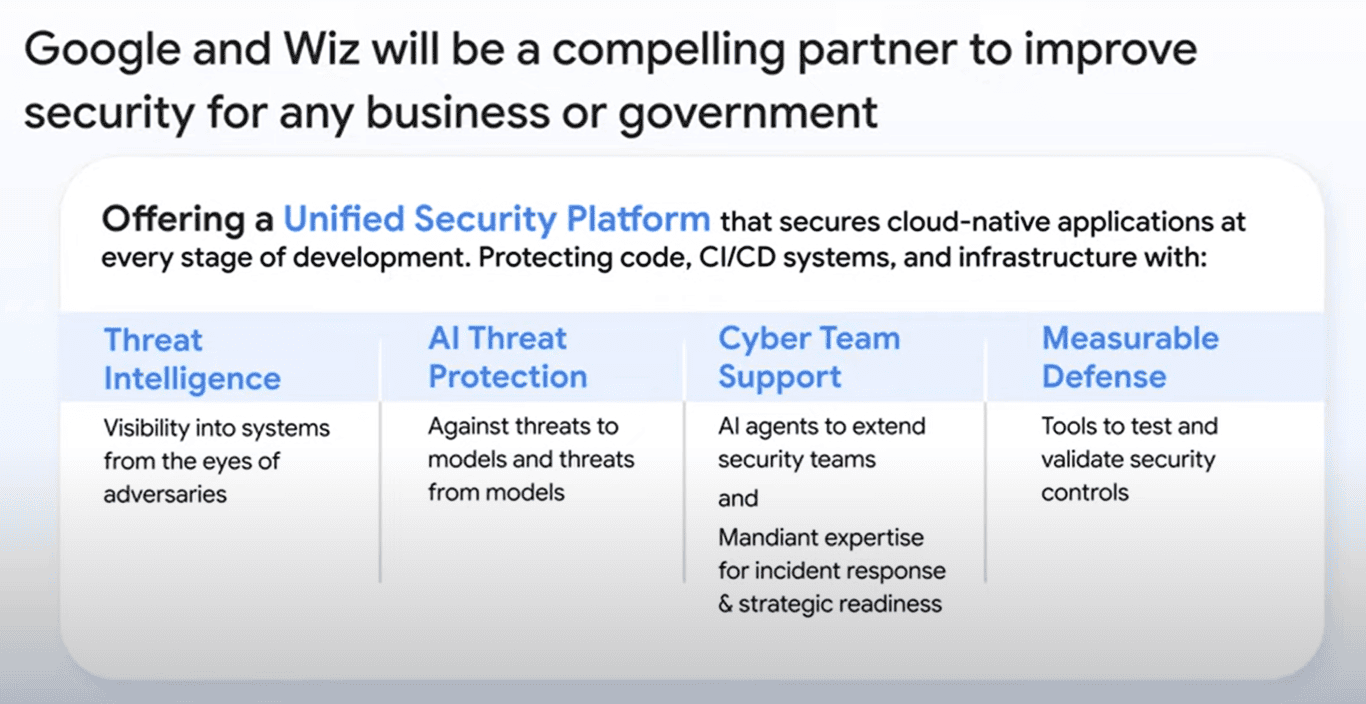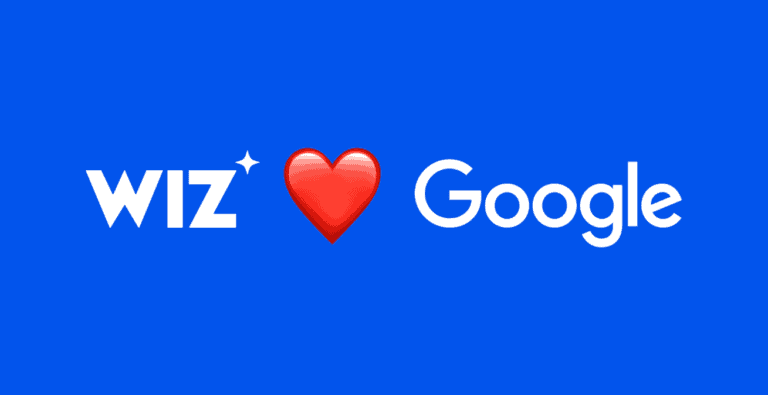Alphabet, Google’s parent company, has swiftly finalized a significant acquisition. Wiz is officially becoming part of Alphabet’s portfolio. The tech giant sees this business as a strategic addition to strengthen its cloud operations, especially as cloud computing increasingly dominates corporate agendas. The question remains: how will Wiz continue to operate under Google’s umbrella?
Alphabet’s acquisition of Wiz transformed from rumor to reality with remarkable speed. On March 18, both parties officially announced the acquisition through messages and video statements. For Alphabet, this represents a major investment, as it’s the largest acquisition the company has made to date. A substantial sum of $32 billion was allocated for the cloud security specialist Wiz.
We won’t delve into the detailed negotiations that occurred throughout 2024 in this blog post. You can refer to our earlier article from March 18 for that information. Instead, we’ll provide an overview of what this acquisition potentially means for the involved parties, as well as for the broader cloud market and customers.
Tip: Google cuts knot with Wiz: company acquired for $32 billion
Catching up in cloud computing market
“As you know, cloud computing is a growing market. We have an expanding customer base with Google Cloud, and the division is now profitable,” says Google CEO Sundar Pichai. He then addresses the question many are asking: “So why is the acquisition happening now?”
The significance of cloud computing continues to grow within organizations. Most companies now operate at least partially in the cloud. However, cloud-native infrastructure isn’t inherently secure. Kubernetes, for example, doesn’t feature a secure-by-default design. Nevertheless, the market has matured enough to establish security standards. As the security landscape continuously faces new and greater challenges, organizations simply cannot ignore these concerns.
Wiz is just one of the players in the big field. The company approaches cloud security through a blend of security expertise and development capabilities. Their solutions are designed to engage both teams. “Because cloud security only works if everyone in the organization collaborates,” states Wiz CEO Assaf Rappaport. Wiz has organized its modern cloud portfolio into three segments: Wiz Code, Wiz Cloud, and Wiz Defend. The platform proactively monitors cloud environments and blocks suspicious activities. “Wiz also gives developers the tools to secure apps and code before deployment,” the CEO adds. This point is crucial for fostering collaboration between developers and security teams.
Wiz: a fast grower
Wiz’s strategy has proven very successful. Last year, Alphabet already expressed interest in the cloud security provider and continued to monitor the company closely. This attention supported Wiz in further strengthening its position through acquisitions. In 2025, the company bought Raftt in December and Gem Security in April. It also raised a billion dollars on top of that. After expanding its own offerings by buying smaller companies, it now finds itself acquired by a giant.
Wiz’s client roster includes Microsoft and Amazon, demonstrating significant trust from the cloud market. Wiz products aren’t tied to any specific cloud platform, which Rappaport credits for the company’s strong market position. Indeed, many companies don’t rely on a single cloud provider but prefer a mix of services, primarily combining AWS and Microsoft Azure.
At first glance, Wiz’s success factors appear to align perfectly with Google Cloud’s DNA. Thomas Kurian, head of Google’s cloud division, explains that this includes building products with security as a fundamental core. Additionally, multi-cloud capability is deeply embedded in Google Cloud’s approach. Consequently, the acquisition agreement stipulates that Wiz’s multi-cloud approach will be preserved. “Wiz will continue to support all cloud environments, on-premises environments, and SaaS applications. Furthermore, it will remain committed to industry standards and to the open source community.”
Nevertheless, Alphabet’s acquisition could significantly impact Wiz’s customer base. There’s a possibility that Microsoft and Amazon might terminate their contracts now that Wiz will be owned by the company that controls competitor Google Cloud. Meanwhile, Google Cloud still needs substantial growth to approach the market positions of Microsoft and Amazon. With this acquisition, the company’s cloud security capabilities receive a substantial boost, gaining significant ground in cloud computing. Additionally, competitors may begin searching for alternative providers, which are unlikely to match Wiz’s capabilities. Thus, Google Cloud’s position in the broader market will undoubtedly benefit from this acquisition.
Benefits for customers
Pichai believes that Google Cloud’s offering is already well-developed and keeping pace with the latest technological advancements. “Google Cloud brings the infrastructure, deep AI expertise and a thorough foundation of security innovations.”
The addition of Wiz can only strengthen that offering. Customers increasingly demand more secure environments. For clients, the future outlook appears even more promising with this acquisition. On the pricing front, according to the CEO, the combination of these two companies could potentially reduce the cost of securing cloud environments.
In his explanation, Kurian elaborates on the future offerings that Google Cloud and Wiz can develop together. He describes an end-to-end security platform that will incorporate Wiz’s existing solutions for security and development teams. Google Cloud will enhance these with its AI tools. This integration aims to strengthen security and expand companies’ security capabilities with AI agents that will operate increasingly autonomously through advanced AI capabilities. As security professionals can now envision, AI presents both opportunities and challenges for enterprise security.
Tip: Cybersecurity needs AI as much as AI needs cybersecurity

Thomas Kurian, head of Google’s cloud division, uses this image during the public video statement to explain Google and Wiz’s upcoming joint offering.
Wiz under Google
The future for Google Cloud and its customers looks undeniably bright with the acquisition of Wiz. However, what this means for the cloud security provider remains somewhat unclear today. The security approach adopted by Wiz—bringing together security and development teams—will continue, and Google isn’t abandoning its multi-cloud strategy either.
The only uncertainty concerns Wiz’s independence. Kurian states that Wiz will remain an independent company but adds that this arrangement applies until the deal is finalized. Once approval is received from the necessary U.S. authorities, that independent position may be reconsidered. For now, Kurian indicates that more information will follow when the deal is finalized and beyond.
